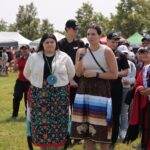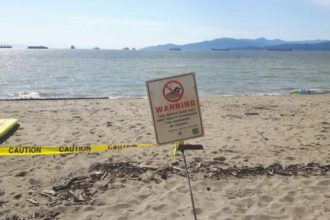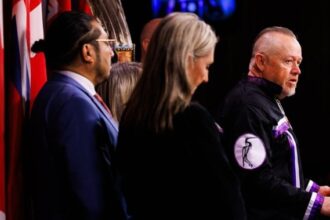Strengthening Community Ties
In the picturesque expanse of North Island-Powell River, a fresh political narrative is unfolding as Taneille Johnston emerges as a formidable voice in the upcoming federal election. Johnston, a dedicated community advocate with deep roots in Vancouver Island, is quickly distinguishing herself through a campaign that prioritizes local resilience and sustainable economic growth in this diverse coastal riding.
Ground-Up Solutions for Coastal Communities
“The challenges facing our coastal communities require solutions built from the ground up,” Johnston explained during a recent town hall in Campbell River. “We need leadership that understands the delicate balance between protecting our natural resources and creating sustainable opportunities for working families.”
Focus on Economic Development and Sustainability
Johnston’s platform addresses the unique economic landscape of North Island-Powell River, where traditional industries like forestry and fishing intersect with tourism and emerging green economy initiatives. Her approach resonates particularly well in communities still recovering from pandemic-related economic disruptions and grappling with housing affordability concerns that have spread beyond urban centers to rural Vancouver Island.
Addressing Regional Challenges
The riding, which stretches from Comox to the northern tip of Vancouver Island and includes portions of the mainland coast, presents distinct governance challenges. Remote communities face issues ranging from healthcare access to reliable transportation infrastructure—concerns Johnston has prioritized in her campaign stops throughout the region.
A Campaign Based on Consultation
“What distinguishes Johnston’s approach is her commitment to consultation,” noted Dr. Eleanor Ramirez, a political scientist at Vancouver Island University. “She’s building a campaign that reflects the actual priorities of constituents rather than imposing external political frameworks.”
Polling and Public Support
This grassroots strategy appears to be gaining traction. Recent CO24 Politics polling indicates growing support in key communities, particularly among younger voters and those concerned with environmental protection balanced with economic development.
Addressing Housing and Economic Opportunity
Johnston’s background in community development has shaped her perspective on the region’s housing crisis. “We can’t separate housing affordability from economic opportunity,” she stated during a recent interview with CO24 News. “When working families can’t afford to live in the communities where they work, we lose the foundation of sustainable local economies.”
Commitment to Indigenous Reconciliation
The candidate has also emphasized the importance of reconciliation with Indigenous communities, proposing collaborative approaches to resource management that respect traditional territories while creating economic opportunities. Her platform includes specific commitments to implement recommendations from the Truth and Reconciliation Commission.
Economic Implications of Johnston’s Policies
Financial analysts following the campaign note that Johnston’s economic proposals could have significant implications for the region. “Her emphasis on sustainable development in traditional resource sectors could position North Island-Powell River for more stable long-term growth,” commented financial analyst James Prentice in a recent CO24 Business report.
Building Consensus Across the Riding
As election day approaches, Johnston faces the challenge of uniting diverse constituencies across this geographically expansive riding. From fishing communities concerned about marine protection to forestry workers worried about industry sustainability, her ability to build consensus while maintaining clear positions on contentious issues will likely determine her electoral success.
A Community-Centered Approach to Politics
In an era when political polarization often dominates headlines, Johnston’s campaign offers an alternative approach focused on community resilience and practical solutions. As voters in North Island-Powell River consider their options, many are asking: Can this community-centered approach to politics deliver the representation this unique coastal region needs in an increasingly complex national landscape?


















